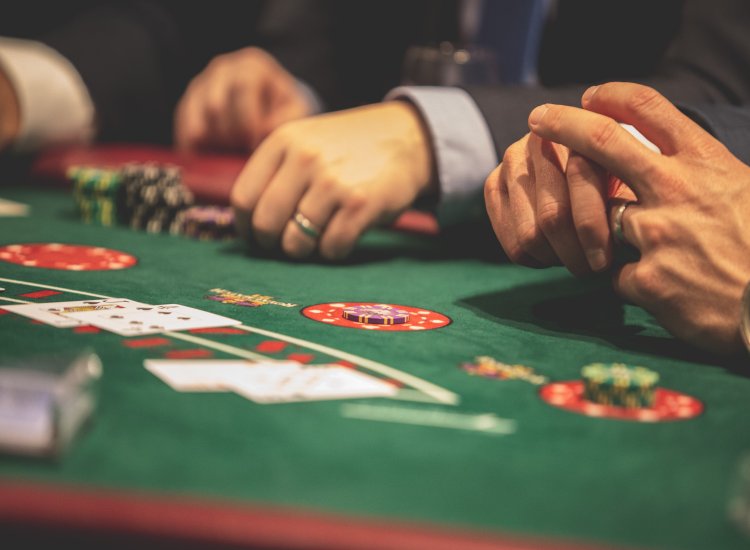

Gambling has been an activity that has been very popular in a number of different cultures for centuries. However, it’s also an activity that many countries and regions have been against too. In particular, Ireland has been known for their anti-gambling stance. There are a number of different aspects that have contributed to this and has resulted in a long and rich history when it comes to gambling in the country. This article is going to take a look at what gambling looks like in today’s modern world, as well the history of gambling, cultural and historical factors that led to the Irish right’s opposition to gambling.
What does gambling looks like in Ireland today?
Today gambling is an extremely popular form of entertainment for many adults. There are a number of different ways to get involved with the exciting world, including playing in casinos, online casinos, sports betting and even the lottery. In fact, sports betting is especially popular in Ireland during big events such as the Dublin Horse Show, Irish Derby or the FAI Cup Final. This even extends to big events that happen across the globe too, such as the World Cup, highly anticipated boxing matches, and The Six Nations. There are a number of casinos and betting shops throughout the country. And thanks to the rise of technology, there are now rafts of online gambling platforms.
Legislation and regulation
This is what ensures online casinos and betting platforms are running legally and protecting their customers. Like many other countries, Ireland has a legal framework that governs gambling across the country, in person and online. As the gambling industry evolved, so has these laws and regulations. Gambling in Ireland was once illegal. However, that’s not to say it didn’t happen. There are written records of gambling that date back to somewhere between 110 BC and 60 AD. It’s said that many individuals would bet on the outcome of chariot races at Curragh. This shows that gambling has always (at times secretly) been a huge part of Irish culture. As the gambling industry grew and became more popular, it became harder for the government to stop it, which resulted in laws and regulations being introduced which made it legal, but also came with a set of regulations to protect players.
It’s important to note that gambling wasn’t legalised all at once. It took time for it to be fully legal. There have been a number of different laws and regulation passed such as the 1931 and 2015 Betting Act, the 1956 Gaming and Lotteries Act or the 2022 Betting Regulation Act which has evolved gambling into how the Irish know it today.
Religious influences
The strong influence of Catholicism in Ireland is believed to be one of the contributing factors of Ireland’s anti-gambling stance. One of the main lessons in the Catholic church is the virtue of temperance and prudence. Temperance refers to moderation and self-restraint, whereas prudence is being able to make practical and wise decisions and being able to have practical judgement and foresight. As gambling comes with risks such as addiction or financial harm, it can be seen as conflicting with the teachings of the catholic church. While a huge portion of Ireland still identify as Catholic, many individuals follow religion different as not as closely now.
Historical factors
Another contributing factor to the anti gambling stance in Ireland is it’s history. Sadly, Ireland has a history of financial hardship. The Great Famine in Ireland lasted from 1845-49, this is when the potato cropped failed which resulted in a large portion of the country suffered from famine. This is a huge part of the Irish culture and history which completely changed attitudes in the country. These attitudes have been passed on through generations, giving individual’s a greater appreciation for their finances and not putting it as risk. This moral perspective would have contributed to the Irish Right’s anti gambling stance.
Cultural and societal values
While gambling is an extremely popular activity than many enthusiasts like to get involved with. Especially as gambling and in particular betting is attached to the Irish culture in a few ways. With big sporting events and even other events such as the Eurovision being part of the Irish culture, many individuals include betting with these exciting events. However, there are still a number of risks and stigma that come with it. This is another reason why there still might be a negative attitude towards it in the country. A huge part of the Irish culture is community, solidarity and social responsibility, arguably, gambling goes against this. However, instead of making it illegal in the country, the Irish government have put in place laws and regulations to ensure the safety of their people. This is essential, especially now as online casinos and betting platforms make gambling in other regions where it’s legalised more accessible. This has meant Ireland has had a deluge of online casinos that are now regulated within the nation. The Clubhouse is a top rated casino that is extremely popular among many enthusiasts, along with established companies like PaddyPower and Betfair also having huge stakes in the country. The gambling industry is growing bigger each day all over the world, with thousands of new players getting involved each day. This has led to the Irish government legalising gambling, but on their terms.
In conclusion, Ireland has a rich history and culture that has contributed to the Irish Right’s anti gambling stance. While there may still be some negative opinions on gambling in Ireland, it remains to be a popular activity for many. Because of this the government has been proactive and created laws and regulation to ensure it’s done legally and safely.


